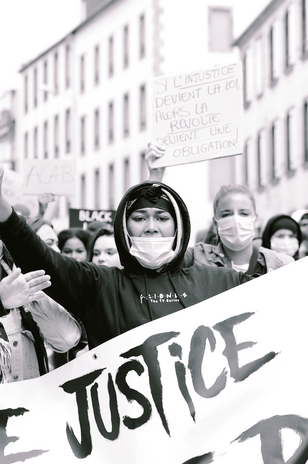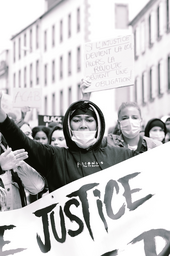When the word feminism gets brought up, what comes to mind? The wage gap, free the nipple, equal job opportunity, etc. While these are very relevant and substantial topics in our current world, this only scratches the surface of what real feminism represents.
The definition of intersectional feminism revolves around a universal, humanitarian perspective that caters to all women. So what differentiates this from the Western feminism that our nation idealizes?
Intersectional feminism highlights the obstacles that women of color worldwide face. This belief dismantles the Western perspective that all women’s issues revolve around Americans, specifically white women.
During women’s suffrage, prominent figures such as Susan B. Anthony and Elizabeth Cady Stanton received acclaim for their advocacy in the struggle for women’s rights, but they were excluding Black women throughout the process. Their intentions for women’s rights were centered around white supremacy, considering their voting demands excluded all Black women from their efforts. Unfortunately, this mindset transcended to the modern day where all statistics against women’s rights that are often mentioned in feminist conversations exponentially affect black and brown women at a much higher rate. Yet, they are rarely mentioned.
An example of this is maternal mortality rates. Black women are three times more likely to die during birth in comparison to white women in the US.
The wage gap is a highly visited topic that is argued amongst many politicians and activists. Black and brown women make up to 65 cents for every dollar a white man makes. Whereas white women make up to 85 cents for every dollar made by white men.
Through these disparities, it is evident that there can be no conversation about modern-day feminism without mentioning the higher statistics that affect black and brown women. By doing so, this does not hurt the feminist movement but rather it implements the importance of equity and decentralizing the movement from white supremacy.
Beyond the feminism that highlights Western issues, positionality is an important aspect of being a true feminist.
In Western feminism, this is the most prominent issue that arises from a lack of duality in the conversations that revolve around feminist injustices. Many of the conversations apply to issues that can exclusively apply to white women whereas global issues are rarely get attention. Often, this is due to a fear of being controversial or a lack of regard for something that does not directly affect the demographic.
Postinality is arguably the most important part of any injustice or minority crisis. The issues that affect women in this country are irrefutable and prevalent, but they do not, to any extent, compare to those globally.
Returning to the identical statistics impacting American women, their repercussions extend globally, adversely affecting women worldwide. 43.7% of employed women in the Republic of Congo are below the poverty line, with 27.3% of those women being married before the age of 18. In a sense, the wage gap applies to this nation but at a much higher, more determinantal approach.
Regarding reproductive rights, Sudanese women experience disproportionately dire consequences. With there being 789 deaths per 100,000 births, the nation has amongst the highest maternal mortality rates globally.
Within Yemen, a majority of women do not have access to adequate menstrual products, making menstrual hygiene a leading cause of illness and death. Many women are forced to use rags and pieces of cloth as an absorbent. This exacerbates the sanitation crisis in the nation, resulting in the deaths of thousands annually and leading to bacterial infections that cannot be effectively treated.
In Palestine, women are using pieces of tents in refugee camps as absorbents for their menstrual cycle, and many are giving birth without any form of medication.
These issues lead back to the two key factors, positionality and intersectional feminism. The two go hand in hand. There is no issue with recognizing the tribulations that all American women go through. However, it is important to simultaneously advocate for the disparity between women within our own nation while simultaneously fighting for women that the world disregards.
To deem someone as a genuine feminist or humanitarian, possessing a global outlook that prioritizes individuals who may not share the same challenges is imperative.


